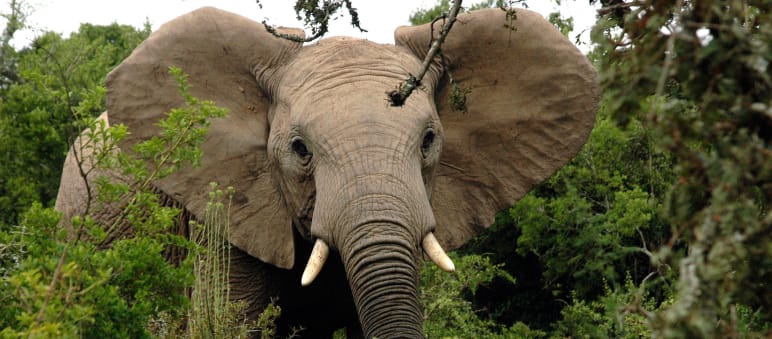
Ivory trade in the EU is (almost) history
: The protection of elephants is making headway: the European Commission is finally moving to close loopholes in the trade in ivory within Europe. Subject to permits, exemptions would be available for works of art and musical instruments, however.
A guidance document published on December 16, 2021 is calling for the suspension of the trade in raw ivory within the EU. The only exception is related to the repair of objects with old ivory and musical instruments.
The document also advocates an end to trade in worked ivory items within the EU. Again, there would be exemptions, subject to authorization, for works of art predating 1947 and musical instruments from before 1975. Such exemptions would also apply to imports into the EU and re-exports.
While international trade in ivory has been prohibited since 1989 under the Washington Convention on International Trade in Endangered Species of Wild Fauna and Flora (CITES), there have been serious loopholes within the EU, making Europe a hub of the legal and illegal trade.
Rainforest Rescue has repeatedly pointed out Europe's responsibility, and our petition calling for an outright ban of the ivory trade has been signed by nearly 900,000 supporters.
The new EU guidance is not in itself legally binding, and conservationists are therefore pushing for member states to implement the ban in national law. We are therefore continuing to call for the protection of elephants – please sign our petition if you have not already done so.
An excerpt from the guidance document:
The purpose of this guidance document is to interpret Council Regulation (EC) No 338/97 (the “Basic Regulation”) and Commission Regulation (EC) No 865/2006, and recommending that EU Member States:
- a) suspend the (re-)export and import of raw ivory items; b) suspend internal EU trade in raw ivory, except for repairs of pre-1975 musicalinstruments and pre-1947 antiques of high cultural, artistic or historical importance; c) suspend internal EU trade in post-1947 worked specimens with the exception of pre-1975 musical instruments; d) restrict authorisation for import and (re-)export of worked ivory to pre-1975 musicalinstruments and sales of pre-1947 antiques of high cultural, artistic or historicalimportance to museums, and e) ensure a strict interpretation of EU law on the remaining authorised trade.
